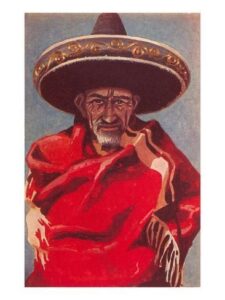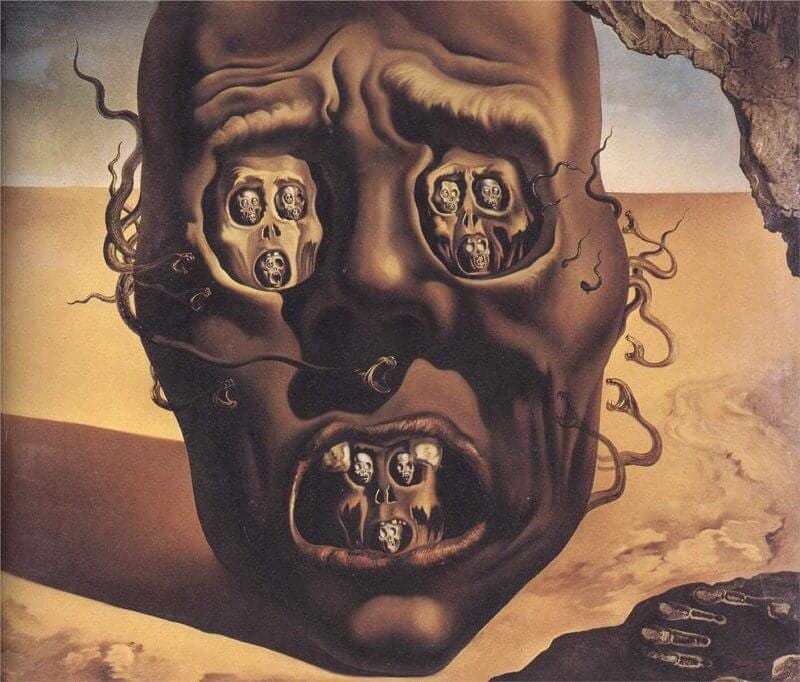SENOR…
Nature is a temple whose living colonnades
Breathe forth a mystic speech in fitful sighs;
Man wanders among symbols in those glades
Where all things watch him with familiar eyes.
Charles Baudelaire, Correspondences (1857)
A soul trembling to sit by a hearth so bright,
To exist again, it’s enough if I borrow from
Your lips the breath of my name you murmur all night.’
Stephane Mallarme, For Your Dear Departed Wife (1877)
Senor (subtitled Tales of Yankee Power) is one of Bob Dylan’s most celebrated songs of the 1970s. Its mysterious dream narrative, marked by a range of disturbing and confusing images, is extremely beguiling, conveying rising anticipation and a growing sense of panic. This is a song that communicates not through direct logic but by symbolic association and intense emotion, in the manner of symbolist poetry. Dylan has performed it several hundred times and it remains the only song from Street Legal that he has returned to regularly since the 1978 tour. A plethora of cover versions exist. Among the most effective readings are those by Elvis Costello (who really ‘acts’ the song out with some extreme vocals), Bonnie Prince Billy, Gillian Welch and The Jerry Garcia Band. A riveting cover by Tex Mex outfit Calexico with near-spoken vocals by Willie Nelson appears on the soundtrack of the surreal Dylan ‘biopic’ I’m Not There.

The original recording begins with muted saxophone and a roll of hand held percussion, before Ian Wallace’s heavily ominous drum, which plays a slow and sonorous rhythm reminiscent of a military funeral, kicks in. The arrangement is restrained and tense. Dylan’s vocals are at first rather subdued, increasing in volume as he expresses moments of anxiety. The female backing vocalists are used sparingly to add a haunting ambience. Steve Douglas on sax continues plays a separate melody, suggesting that there is a dichotomy between what the narrator is expressing and the real world. Touches of mandolin, played by David Mansfield, add to the exotic atmosphere. The song contains five verses (all beginning with …Senor, Senor...and – unusually for Dylan – two bridges, which are positioned after the second and third verses. This unconventional structure allows for a build up of emotion at the beginning and end of the song, with an icy calm in the middle section.

The music conveys an otherworldly feeling which is mirrored by the highly ambiguous and imagistic lyrics. The first three verses and the two bridges communicate their meanings through apparently random association, while in the final two verses the narrator seems to be struggling to regain a sense of reality. Senor conveys a visionary narrative which cannot be reduced to any single interpretation. Its powerful and resonant images succeed each other with the logic of a dream. The narrator maintains a conversation throughout with a ghostly figure that he addresses only as ‘Senor’ and who never replies to the many questions he is asked. Four of the five verses, including the final one, end in these unanswered questions, leaving listeners to ‘fill in the blanks’ themselves.

Some commentators have argued that, given that Spanish speaking Christians generally address God as ‘Senor’, the narrator is having a conversation with ‘The Lord’. Given that Street Legal is Dylan’s last album before his religious conversion, it has been asserted that the song is therefore some kind of ‘prelude’ to the Christian material that would follow. However, while it is true that the narrator appears to be in a state of considerable spiritual confusion, the identity of ‘Senor’ is never explicitly revealed. The song itself is certainly not any kind of expression of religious devotion and there are no explicit references to Biblical characters or events. The subtitle, Tales of Yankee Power, although it has a rather tentative relationship to the lyrics, suggests political and historical subtexts. During the ’78 tour Dylan liked to precede the song with a mysterious introduction describing what had inspired him to write it. This grew more and more fantastical as the tour progressed. At his show in Memphis on 1st December, he related the following story:
… I was riding on a train one time from Mexico, up to San Diego. Anyway, I fell asleep on this train I woke up…at the time I woke up the train had stopped at a place called Monterey. And there was a family with about 15 children getting off the train and this old man was stepping up to get on to the train. So he was coming down the aisle, I was watching him through the glass, like a mirror. I’d seen him get on and watched this figure moving up the aisle. And he takes a seat across the aisle from me. … He was about 150 years old and he was wearing a blanket. That’s all he was wearing was a blanket. And I turned to look at him and I see his eyes were burning like they was on fire and there was smoke coming out of his nostrils. And I think, this is a man I wanted to talk to….

Dylan’s entertaining ‘explanation’, which sounds rather like a scene from a low budget horror movie, certainly places a clear image in the audience’s minds. It may be significant, though, that Dylan describes himself as having seen all this after waking up. One can only wonder whether he was in fact still dreaming.

The song opens with two questions: …Senor, Senor, can you tell me where we’re heading/ Lincoln County Road or Armageddon?/ Seems like I’ve been down this road before/ Is there any truth in that, Senor?… These questions, like the others in the song, will never be answered. ‘Lincoln County Road’ may be a reference to an area of New Mexico which lies near the border with Mexico itself. This location was famously the site of the ‘Lincoln County War’, a murderous extended battle between rival gangs which began in 1878 and in which Billy the Kid was killed. The narrator appears to be asking ‘Senor’ about the destiny of the world, which is presumably under the control of ‘Yankee power’. This may be a serious question or not, but what it mainly establishes is the presence of a paranoid narrator, who seems to be experiencing déjà vu and is desperate for answers. Already one may wonder whether ‘Senor’ is a real person or whether the narrator is merely asking himself rhetorical questions. We also do not know whether the conversation is being held on a train, in a car on horseback or in a room.

The next questions that the narrator asks appear to be about the whereabouts of an unknown woman, presumably the same person who we later learn …held me in her arms one time and said “Forget me not”… This is all the information we will get about her. The narrator asks …Do you know where she‘s hiding?… We can construct a number of scenarios here. Perhaps she is on the run from bandits in another ‘turf war’ in Mexico. Or maybe she is hiding from the narrator himself. This romantic farewell appears to have taken place in a ‘vacant lot’ in which a ‘marching band’ (perhaps the source of that insistent drumbeat) is ‘still playing’. This recalls the similarly dreamy mention of an ‘empty lot’ in Visions of Johanna. We are given further clues as to what is going on. The narrator asks Senor …How long are we gonna be riding?… which suggests they are on horseback. It could be that, like the lovers in Romance in Durango, they are in flight across the Mexican desert. But there is no mention of police or soldiers following them. The narrator also asks…How long must I keep my eyes glued to the door?… It now seems that they are hiding in a house or perhaps a cantina, apparently afraid of being attacked, or perhaps being caught by the authorities. We also hear that …There’s a wicked wind still blowing on that upper deck… which supposedly places them on a ship in a storm. It may be, however, that as this is a dream, their location is changing from moment to moment. Also we cannot be sure whether we are in any particular historical period. We are also informed that she has …an iron cross still hanging down from around her neck… a strange detail which presumably does not refer to the German military medal or necessarily imply any kind of religious devotion.

The narrator seems to be being bombarded by random and contradictory images which may be part of the story of his relationship with the unnamed woman. None of this makes rational sense but what is most affecting is the growing feeling of unease that is emphasised by the question …Will there be any comfort there, Senor?… and the later pronouncement that he …can’t stand the suspense any more… In his dream vision he glimpses a ‘painted wagon’, which suggests Wild West pioneers, perhaps coming to assert ‘Yankee power’. He can also …Smell the tail of the dragon… As ‘chasing the dragon’ is a method of ingesting heroin, this might be taken to indicate the presence of the drug running gangs that have been so powerful in modern Central America. A dragon also appears in the Book of Revelation, so perhaps we are back in the shadow of Armageddon again. Trying to ‘unpick’ all of this is, however, as futile as the questions that the narrator asks Senor. It seems as if Dylan has constructed a story here, but has only provided us with a few random details. This leaves us to construct our own version of the scenario.

The narrator now looks back at what may be a crucial incident in the story in which he is apparently under some kind of threat …The last thing I remember… Dylan sings …before I stripped and kneeled/ Was that trainload of fools bogged down in a magnetic field… which may conjure up a picture of a train having being attacked by bandits, who are (rather bizarrely) using some unknown technological device. The narrator certainly seems to have been publically humiliated in some way. It seems that he does not really know where he is. In the last two lines of the fourth verse, however, some kind of reality seems to strike. Another character is introduced: …A gypsy with a broken flag and a flashing ring… Dylan frequently refers to gypsies in his songs, often to add a touch of mystery. In I Want You there is a ‘gypsy undertaker’. Spanish Harlem Incident is a paean to a ‘gypsy girl’. One More Cup of Coffee is a ‘gypsy gunfighter ballad’, while Went to See the Gypsy imagines a meeting with Elvis Presley. But here the gypsy’s role is to bring the narrator back to some kind of reality: …He said “Son, this ain’t a dream no more, it’s the real thing…

In the last two verses the narrator seems to come to his senses. Exactly where, and in which historical period, he is located is not revealed. Still talking to Senor (who may even actually be the revelatory gypsy) he mutters, in a weirdly ungrammatical pronouncement …Their hearts is as hard as leather… Then he switches into modern colloquial ‘hip speak’: …Well, give me a minute, let me get it together /Just gotta pick myself up off the floor… Now he seems to be preparing himself to take revenge on his enemies …I’m ready when you are, Senor… he growls. He appears to reveal that he is indeed hiding in a room. He tries to persuade Senor to help him …overturn these tables/ Disconnect these cables….The line …This place don’t make sense to me no more… seems to indicate that he has escaped from the illusory world he has been trapped in. He challenges Senor to help him escape, presumably so that his revenge can be wreaked, concluding with the highly portentous …I’m ready when you are, Senor…

Whether Senor will respond is up to us to decide. For all we know, he is responsible for the predicament that the narrator is in. Perhaps he has fed the narrator some mystical Mexican mushrooms. Or maybe he is just a figment of the narrator’s imagination. The ominous tone of the final line suggests, however, that some real violence is about to occur. Whether this will be a gangsters’ turf war, like the Lincoln County War, or the final conflagration of Armageddon itself, is also down to the listener to figure out. The narrator certainly seems ready to assert his ‘Yankee power’. Senor is thus one of Dylan’s most mystical creations. As with the work of the symbolist poets, it sets up a rich imagistic scenario, into which the audience is invited. Once in this symbolic world, it remains the listeners’ choice as to which scenario they recognise as real. As indicated by all its unanswered questions, the song could thus be said to be an exercise in creative ambiguity. What does appear to be certain, however, from the lyrics, the mode of singing and the delicately balanced instrumentation, is that a new and dangerous energy is about to be released into the world, which will transform it, either for good or for evil. We are left, perhaps, to contemplate one of the songs most searching enquiries: …Will there be any comfort there, Senor?…



Leave a Reply